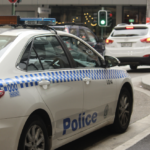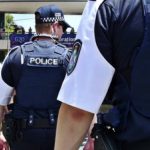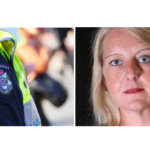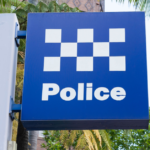Corruption Pervades Police Forces in Australia and United Kingdom: Part 2
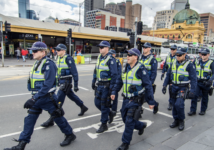
The headline of a report in the Age Newspaper on Wednesday 22 March 2023 read, “Gobbo seeks immunity deal to dob on police.” Gobbo refers, of course, to Nicola Gobbo; also known as lawyer X.
If granted, lawyer X is prepared to provide evidence of corruption against more than a dozen current and former serving Victorian police officers.
Police attempt to thwart investigation
It is obvious to any reasonable observer that the potential to uncover egregious offences against public justice is the primary reason Victoria Police are doing everything within their power to thwart the special investigator, His Honour, Justice Geoffrey Nettle, AC KC – who was appointed without statutory powers by the Victorian government – for 16 months by failing to provide the highly-respected judge with the material he requires to do his job.
The systemic corruption within this organisation we entrust and pay billions of dollars a year to provide us with safety and security by enforcing the law, and who swear themselves to uphold the law, truly beggars belief.
In the words of the High Court of Australia during its decision to unveil the conduct of Victoria Police to the public – something which the organisation fought tooth and nail all the way to the highest court in the land:
“Victoria police were guilty of reprehensible conduct in knowingly encouraging [Gobbo] as they did and were involved in sanctioning atrocious breaches of the sworn duty of every police officer to discharge all duties imposed on them faithfully and according to law without favour or affection, malice or ill-will.”
Special investigator not given sufficient powers
His Honour Justice Nettle lamented the lack of coercive powers given to the office of the special investigator (OSI) by the Andrews government, which means the OSI is unable to compel people to answer questions or produce documents about their dealings with Lawyer X.
This includes, one would surmise, police, office of public prosecutions staff, government officials and members of parliament.
The special investigator was appointed to clear up the many hundreds of cases that the Royal Commission couldn’t get to and whilst potentially innocent people are languishing in prisons around the state of Victoria, Victoria police and perhaps others in authority are still involved in what appears to be covering their tracks.
Perhaps lawyer X can answer that and pave the way for more innocent people to be freed, with others in uniform of one sort or the other incarcerated?
Lawyer X referred to her involvement in a “giant conspiracy” with Victoria police, destroying or modifying documents, leading to her violation of legal privilege.
You may recall in episode 1 of how lawyer X was picked up by Victoria police and taken to headquarters to secretly alter statements, which the court would never find out about, because of how clever Victoria police were.
You may also recall how the Director of public prosecutions, Kerri Judd, KC accused senior police, including chief commissioner, Graham Ashton of misleading the High court of Australia, the Supreme court of Victoria and possibly two former Directors of public prosecutions.
The question must be surely, what was the Victorian government’s position in relation to this at that time?
Victoria now has an opportunity to do a ‘Baroness Casey’ in cleaning up its police force and perhaps other Victorian Government organisations, by giving the office of the special investigator statutory powers, and if not, the next question must be, what is the Victorian government hiding?
Or, indeed, is a royal commission into Victoria police similar to the review of Britain’s MET now necessary, in view of what may be, if lawyer X is telling the truth, institutional lying by those at the helm of Victoria police at the very least
Not just simple lying but lying leading to perversion of the course of justice in none other domains, than the High court of Australia, the Supreme court of Victoria and the Victorian office of public prosecutions.
London MET in danger of being disbanded: Baroness Casey’s final report.
In part 1 of corruption pervades police forces in Australia and the United Kingdom we saw the chief commissioner of London’s metropolitan police (MET) announce to British citizens to get used to a policeman from the MET being prosecuted in court ever week until 2025 for corruption amongst other crimes.
We also read about the fact that it may be thousands of police who should never have been police officers, as they had criminal records, believed to have committed serious crimes and had family involved in organised crime.
Well, institutional racism, misogyny and homophobia was the initial finding, but it gets worse.
One police officer told of how she tried to take her own life as she was snubbed for reporting b being abused. Another reported a sexual assault against a senior officer and was labelled a trouble- maker. Yet another was raped multiple times by a colleague.
The Baroness couldn’t guarantee that there weren’t more like the two officers from the parliamentary and diplomatic protection unit PaDP, one who kidnapped, raped and murdered a young woman and the other police member who was convicted of 24 rapes.
Financial Times quotes Baroness in stating that London police force should be overhauled or broken up.
Guardian newspaper says MET has nowhere to hide.
Baroness Louise Casey said the MET was failing women and children, failing to protect the public from police officers who abuse women and was unable to police itself.
Baroness Casey has called for the dark corner units, such as the diplomatic and parliamentary protection unit (PaDP), where two of its members have been imprisoned for life for rape and murder.
London mayor, Sadiq Khan said it is important that the government and the police federation are not in denial about the findings of institutional racism, homophobia and misogyny and if anybody doesn’t get it, they don’t deserve to be in the police service.
Well, let’s see how serious the mayor is, as the boss of the MET, Sir Mark Rowley, who literally cried whilst reading the earlier interim report, said of the final report that whilst he acknowledged the systemic nature of discrimination, he disagreed with Baroness Casey’s judgment of the MET being institutionally racist, misogynistic and homophobic.
Worse than that, the UK Home Secretary, Suella Braverman agrees with the Chief Commissioner. What hope do the reforms have, despite the rhetoric that the recommendations will all be accepted?
Perhaps Sir Mark Rowley doesn’t deserve to be in the police force, if the mayor is right. Oh yes, of course and the Baroness, who actually supported the commissioner. One wonders what Lady Casey’s opinion is now…on both the Home Secretary and the chief commissioner?
Who is Baroness Dame Casey?
Lady Casey, as she is sometimes referred to, is a champion of the poor, homelessness and underprivileged and is chair of the institute of global homelessness, the goal of which is to deliver a solution to homelessness throughout the world.
Baroness Casey of Blackstock, DBE, CB, former Dame commander of the order of the British Empire, prior to her becoming a member of the house of lords and baroness of Blackstock, stated without fear or favour that very little has changed since a quarter of a century ago, from the Macpherson report which found the police to be institutionally racist.
Further, the house of lords peer said that subsequent reports had been followed by hollow promises and fake change, born out of a failure to accept the truth.
Baroness Doreen Delceita Lawrence of Clarendon, OBE is a British Jamaican, whose son Stephen was murdered in a racist attack in south east London in 1993 said the MET is rotten to the core.
Baroness Lawrence, once named the most powerful woman in Britain by the BBC dedicated her life to the community, anti-racism and an inclusive society, so that everyone, regardless of gender, race, sexuality, religion, disability or background, could live their best life, as the Baroness put it.
The Baroness’s 16 recommendations:
- The misconduct process is not fit for purpose. A new independent, multidisciplinary team of officers and staff should be brought in by the Met to reform how it deals with misconduct cases, with a particular focus on how it handles sexual misconduct, domestic abuse and discrimination.
- The Met should embed and enforce the highest-policing ethical values and standards across all of its systems and management, from recruitment and vetting through to supervision and the misconduct process, making sure these are adhered to by all its officers and staff, and that those who breach the standards face the consequences the public would expect.
- Vetting standards should be changed with immediate effect to guard against those who intend to abuse the powers of a police officer. The Met should introduce new end-to-end processes throughout an officer or staff member’s service – from initial recruitment and vetting through to leaving the force – with a relentless focus on identifying and reducing opportunities for predators who seek to abuse the powers of a police officer from joining or staying in the Met.
- Some of the worst cultures, behaviours and practices identified by the Review have been found in specialist firearms units, where standards should be at their highest. The Commissioner should introduce immediate changes to address our concerns with the Parliamentary and Diplomatic Protection (PaDP) and Specialist Firearms (MO19) Commands, including :
i) effectively disbanding PaDP in its current form, ensuring there is an absolute “reset” with a new ethos, identity and a focus on rooting out unacceptable behaviour.
ii) setting new, higher vetting and behaviour standards in its specialist armed teams to identify any conduct issues and to keep out those drawn to these roles for the wrong reasons. In addition, all current officers carrying firearms, including those in MO19 and PaDP, should be thoroughly re-vetted and have this standard applied to them retrospectively.
iii) revoking unequivocally and permanently firearms qualifications or “blue cards” where any officers values and standards fall short of public expectations.
iv) installing new, external management to oversee the Specialist Training Centre to immediately address issues with its culture and standards.
- The Government should expedite providing the Commissioner with new powers to support his efforts to rapidly reform and clean up the Met, including:
i) providing Chief Constables the right to a Police Appeals Tribunal following a misconduct hearing when they conclude the sanction is inadequate.
ii) enabling the Met and other forces with clear legal power to reopen closed misconduct investigations.
iii) changing police regulations to ensure that failure to maintain or achieve vetting status is grounds for removal.
iv) introducing a managed severance process to allow officers to exit from the service and ensure the service has the skills it needs.
v) strengthening the pension forfeiture rules so that a criminal offence does not have to be committed ‘in connection’ with an officer’s service in order for them to lose their pension.
* The Met should radically reform and re-specialise Public Protection Teams, including the establishment of new specialist “Soteria” teams to deal with rape and serious sexual offences. The Met should also aim to specialise its domestic abuse service to create more victim-centred approaches and to work more closely and in a more integrated way with non-police specialist domestic abuse services. These teams should be reinvigorated and properly resourced. Together this should be a new and significantly enhanced offer to women in London.
- The Met should create an overarching children’s strategy for London to address long-standing concerns about its child protection and safeguarding practices. This should:
i) address its approach to children and young people who are suspected of crimes, and its approach to protecting children and young people who are both victims and perpetrators, for example, through criminal and sexual exploitation and grooming;
ii) provide training for all officers who work with children to prevent “adultification” where police officers and others regard children, especially black and ethnic minority children, as threats rather than children who need protection from harm.
- The Met should be reformed so that the Peelian principles of policing by consent – securing and maintaining the respect and approval of the public – are its guiding principles, and measures against which all of its polices and practices are tested.
- The Met should introduce a new process with Londoners to apologise for past failings and rebuild consent, particularly with communities where this is most at risk.
- The use of stop and search in London by the Met needs a fundamental reset. The Met should establish a charter with Londoners on how and when a stop and search is used, with an agreed rationale, and provide an account of its use by area, and by teams undertaking stop and searches. Compliance with the charter should be measured independently, including the viewing of Body Worn Video footage. As a minimum, Met officers should be required to give their name, their shoulder number, the grounds for the stop and a receipt confirming the details of the stop.
- Frontline officers are those who Londoners see and depend on the most from day to day but feel demoralised, let down by their leaders, and exposed to high stress and pressure.
i) The Met should build a frontline policing service for London which is as revered and well-resourced as its central specialist teams, giving Londoners the Safer Neighbour hoods, Public Protection and Response teams they deserve.
ii) BCU Commanders in the Met should be empowered to account for, and explain with candour and transparency, the actions that are taken in their borough, including those of the central, specialist units such as TSG and VCTF.
iii) The Met should recognise trauma and desensitisation in its officers as a corporate responsibility and provide trauma training for Public Protection and Response officers as a priority, making access to counselling and other services easy.
- Londoners voices are missing from how London is policed. Existing structures do not provide a clear way for local authorities and their residents to hold the Met to account for how they police and tackle crime on a Borough basis. A new borough-based approach should be put in place, building on the positive introduction of new dedicated Borough Representatives, to ensure structures allow for greater transparency and challenge, including democratic representatives through local authorities, to provide the ability to access high quality data and review case handling, and deliver strong and consistent community engagement.
- The Commissioner and Deputy Commissioner, building on their recent appointments to lead the Met, should bring in new specialist expertise from outside the Met in permanent – rather than advisory – roles. This should be to support them to overhaul the management of the organisation, and lead on work including reforming the culture of the Met and the creation of a workforce plan, including measurable and rapid progress on the diversity of the Met’s officer corps at every level.
- A new governance structure should be introduced to oversee and scrutinise the changes needed and ensure full transparency and accountability to Londoners, while maintaining the operational independence of the Commissioner:
i) A new quarterly Policing Board for London – chaired by the Mayor of London, similar to the model used for Transport for London – should be created to drive forward the changes called for in this review.
The Commissioner should continue to chair the new Met Management Board responsible for the leadership, strategic direction and operational policing of the Met.
- The Met and the Mayor of London should commission independent progress reviews after two years, and again after five years, so that Londoners can have trust and confidence that reform is taking place.
- The key measures used to test whether these reforms are taking place and delivering reforms at the scale and pace necessary should include:
- Improvements in public trust, confidence and fairness amongst Londoners, and a narrowing of the gaps in these measures between Black, ethnic minority and LBGTQ+ Londoners.
- Increases in the proportion of misconduct cases where action is taken.
- Reductions in racial disparity in misconduct cases.
- Improvements in the charge rates for reported crimes and, in particular, improvements involving violence against women and girls.
- Increases in the number of adult rape cases reaching court in line with Operation Soteria ambitions.
- Improvements in response rates and times.
- A narrowing in the gap between the diversity of the Met’s workforce, including its officers and senior officers, and the make-up of the city it polices.
This is what you call a fully comprehensive review of a major criminal justice organisation, the Metropolitan Police, delivered without fear of favour, but Baroness Casey is not finished yet.
The MET is the country’s largest police force, with a staff of over 40,000 personnel and you may recall from part 1 of corruption pervades police forces in Australia and United Kingdom that complaints were made against other British police forces; with the MET reporting that close to a third of its complaint calls were to report an issue with other forces.
Hence, the reason that the baroness is calling for every other police force in Great Britain to undergo a similar review, as common sense would allow the thought that it may be reasonably inferred that similar conduct exists in other forces.
Bear in mind that there are 39 other police forces in England and 4 in Wales. There are also 3 special police forces in the United Kingdom being the British transport police, the ministry of defence police and the nuclear constabulary.
Incidentally, Scotland and Northern Ireland have 1 police force each, so it may also be reasonably assumed that such victimisation affecting the public and police personnel also exist to some degree in these countries.
With that said, it may lead to similar revelations about serious levels of corruption, as discussed in the first episode, with more police being prosecuted in the courts, adding to Sir Mark Rowley’s warning to British citizens of two or three corrupt police every week being prosecuted in the courts for years.
The crimes the Baroness uncovered
Each act of racism, misogyny, homophobia islamophobia and ableism is a crime in itself, but it is a crime compounded when it leads to those police who choose not to investigate some crimes by officers in a responsible manner.
In a cosmopolitan country like Britain, it is obscene to have a police force of some 40,000 people, of whom 82% are white and 71% are male. This in itself tells us something about how entrenched the institutionalisation is, from top to bottom.
22% of officers were bullied, which is a form of assault, yet nobody has been sanctioned or prosecuted. 33% with a disability, also without recriminations whatsoever and 30% of LBGT+ have also been bullied.
Other staff have been subjected to sexual assault and /or harassment, domestic violence and misogyny.
Actual crimes committed by MET officers:
- 2021 the kidnap, rape and murder of Sarah Everard.
- 2021 assault of people holding a vigil for Sarah.
- 2021 fundamental failings of the MET probably contributed to three of four murdered men, determined as such by an inquest.
- 2021 the jailing of two MET officers who photographed two murdered women for nefarious purpose.
- 2022 the arrest and conviction of a MET officer for 24 rapes amongst other offences.
- 2022 the strip searching of children by MET officers.
The MET must make changes, but so too must the government
It is clear from Baroness Casey’s report that the MET is under resourced, having lost 18% of their annual budget than what it was 10 years ago. This equates to enough money to recruit and keep nearly 10,000 additional officers.
In 2013, for example, London’s population was approximately 8,000,000.
Today, it is over 10,000,000.
Less operating funds, more people to police, means that the government has to be equally responsible for the state of affairs which the MET is facing, albeit there is no excuse for their heinous attitudes in relation to being racist, misogynistic and homophobic, leading to deaths and heartbreak in some instances.
This also includes turning a blind eye to serious misdemeanours of colleagues, not focussing on caring for women, girls and children, despite a damming report in 2016 asserting that the MET was responsible for the potential for further harm by adults exploiting children.
Rather than senior officers doing the bidding of the government, if that what it was, by not kicking up a fuss about the harm to those mentioned, then that is not only morally wrong, but also criminally wrong, particularly based on the oath each officer swears.
However, I believe having poured over Baroness Casey’s report, it is my considered humble view that this true humanitarian was soft on the government, despite bringing to the reader’s attention of the lack of funding provided by government.
This may, knowing the integrity of Lady Casey, have been for the sake of the greater good, not to upset the applecart, so to speak, in order to be able to highlight serious deficiencies, which affects thousands of people, particularly our most vulnerable.
Let’s return to the question posed at the beginning of this article. Do Australian police need a Baroness Casey:
Australian commission for law enforcement agencies received 478 referrals of corruption, with 353 having the potential for cogency, but only a relatively small number prosecuted.
This was for the year 2020/2021.
Perhaps the Albanese government is getting there as it introduced a powerful transparent and independent national anti-corruption commission Bill, which is expected to be established by mid-2023.
This National anti-corruption commission (consequential and transitional provisions) bill 2022 when it receives royal assent, has broad jurisdiction to investigate systemic corruption across the commonwealth public sector, even to the point of retrospectively.
However, this commission only investigates alleged corrupt conduct involving Australia government public officials.
Public officials under the NACC Act include:
- Members and senators of the commonwealth parliament
- Ministers and their staff
- Employees and contractors of commonwealth agencies
- Commonwealth companies
One would assume it will include the Australian federal police but not state police
Perhaps, this is why we need a Baroness Casey!

